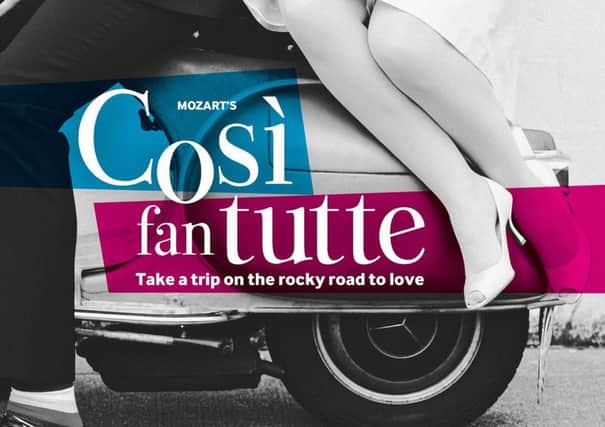Classical review: Scottish Opera: Così Fan Tutte, Stirling


And there’s a moment in Lissa Lorenzo’s bright, eager new touring production for Scottish Opera – which kicked off at Stirling’s Macrobert Arts Centre and visits 19 venues the length and breadth of Scotland between now and early November – where her Ferrando and Guglielmo stumble in their subterfuge, suddenly aware that it might be working a bit too well, even concerned about the feelings of the women they love. But it soon passes. What we’re left with is a production that seems to take things resolutely at face value, keeping a steady flow of charming repartee and guilty gags, but which, despite its abundant good-natured humour, ultimately feels a bit unsettling, as though we’re all party to something unpalatable.
There are some fine performances, though – not least from pianist Claire Haslin, who accompanies throughout with sparkling energy and a delightful lightness of touch. Lorenzo’s central quartet are slightly unbalanced, however, from fine tenor Tristan Llyr Griffiths who invests Ferrando’s every gesture with meaning, through to Rosalind Coad as a somewhat cool, detached Fiordiligi, with a wonderfully lithe, silvery soprano but less to play with in terms of characterisation. Lorenzo’s Don Alfonso – James McOran Campbell – is suave but seems rather unengaged, and sometimes struggles to project even over the piano accompaniment, let alone offering fresh insights into his rather dodgy character’s motivations. But Jennifer France as a gleeful, mischievous Despina is a joy, with a bright, clearly articulated soprano and some nicely persuasive acting too.
Advertisement
Hide AdRobbie Sinnott’s exquisite staging relocates the action to a high-class clothes emporium in 1950s Italy, and the elegance and sophistication of set and costumes are glorious – but they’re less well matched, however, by a similar sophistication in the handling of the opera’s themes. It’s a captivating, entertaining, humorous evening, full of fine singing, but is it challenging, inspirational or provocative? Far less so.
• Victoria Halls, Helensburgh, today, and on tour throughout Scotland until 7 November